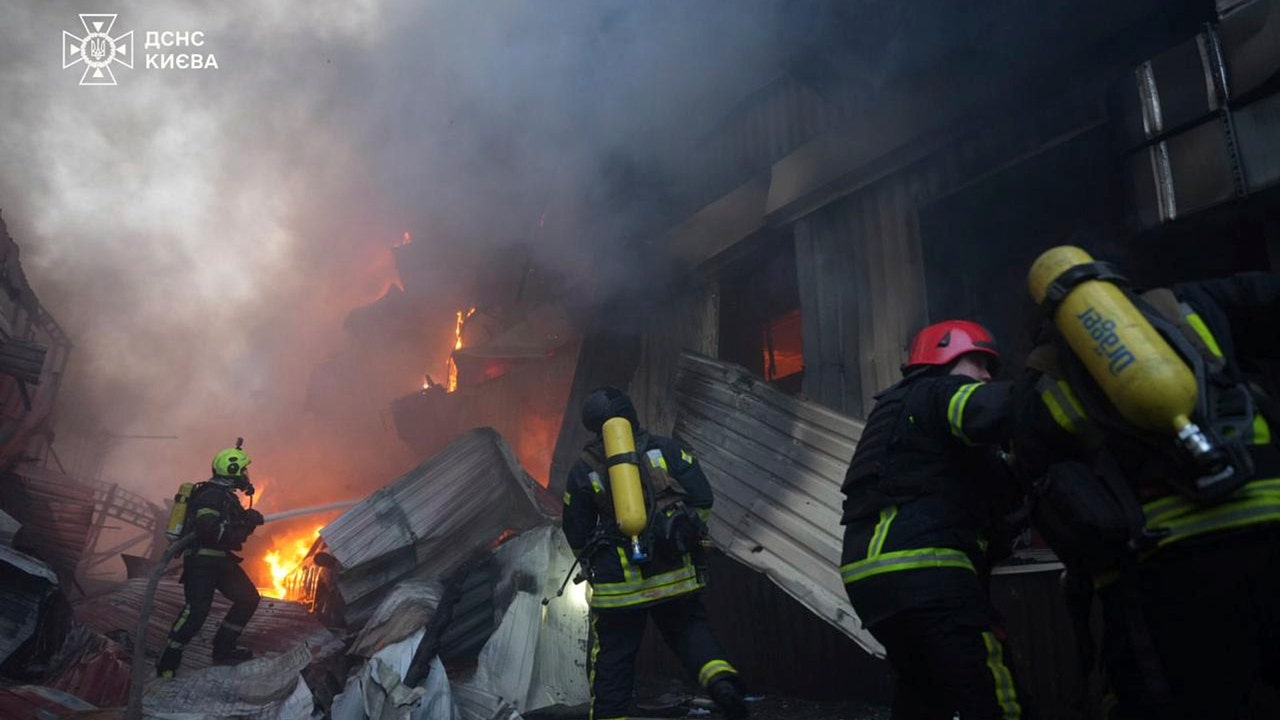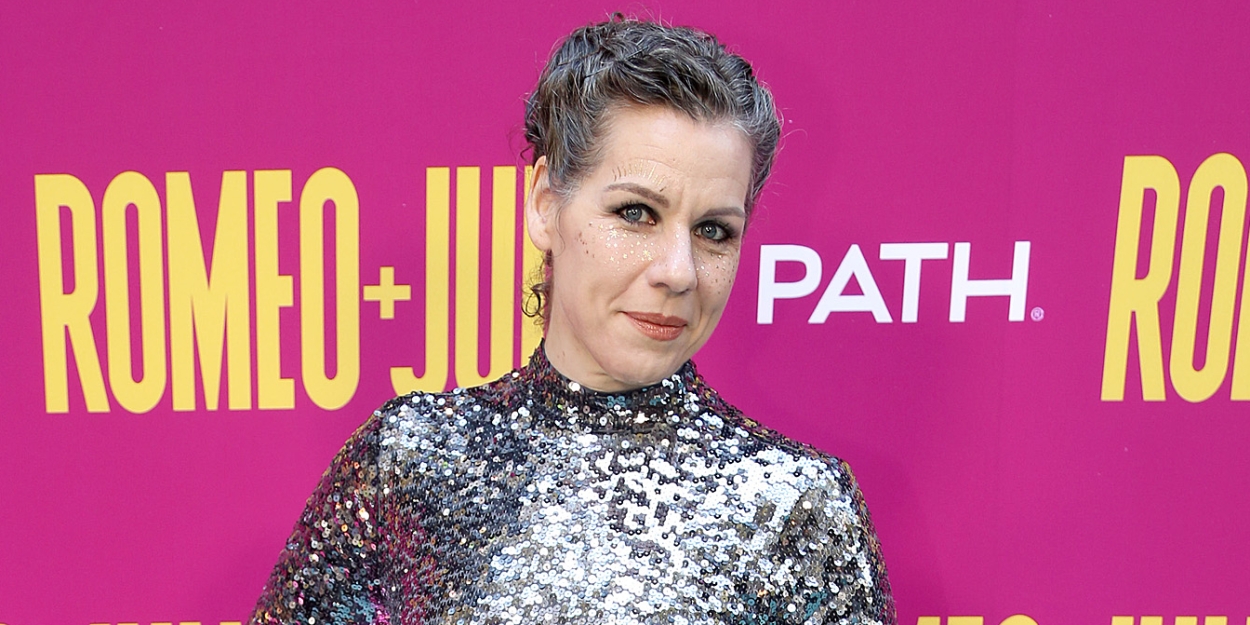Who run the Broadway world? Girls. This March, BroadwayWorld is excited to spotlight five incredible female theatre-makers who are changing the game from offstage. In this final edition of ‘Female Theatremakers’ we are catching up with Broadway Intimacy Director Claire Warden.
‘Female Theatremakers’ is sponsored by Roundabout Theatre Company’s world-premiere of Liberation. From Tony Award nominees Bess Wohl (Grand Horizons) and Whitney White (Jaja’s African Hair Braiding) comes a provocative, revealing, and irreverent jolt of a play about what really goes on when women meet behind closed doors. Liberation – now extended through April 6 only.
Intimacy director Claire Warden hasn’t had to explain her job title in about a year.
She’s not been forced to fork over details about choreographing some of the most vulnerable onstage moments you can imagine – and making sure that nothing is done without consent; that the lines between real and make-believe don’t blur. Instead, her role as an advocate for actors and liaison between performers and creatives (to put it in the most basic terms) has become more widely understood — and accepted.
“That to me speaks of, in a relatively short time – we’re talking not even 10 years – that something that didn’t exist before has now become a kind of household understanding and a new role,” Warden shared with BroadwayWorld. “That feels like we’ve really made a difference already.”
It’s about time. Warden made history in 2019 as the first intimacy director on a Broadway production with “Frankie and Johnny in the Clair de Lune.” She followed that up by becoming the first woman to be nominated for — and win — the Drama Desk Award for Outstanding Fight Choreography in 2019 for her work as the intimacy & fight director on “Slave Play” at New York Theater Workshop ahead of the production’s Broadway transfer. She was also nominated for the Drama Desk Award that same year in the same category for her work as the intimacy and fight director on “Daddy,” a co-production from The New Group and Vineyard Theatre.
Since then, Warden has worked on 11 subsequent Broadway productions as an intimacy and/or fight director/consultant/choreographer. This season, she’s represented on the Main Stem with “Romeo + Juliet” and the recently opened “Othello” starring Denzel Washington and Jake Gyllenhaal. Beyond the stage, she’s tackled intimacy coordination on popular shows and films like the “Gossip Girl” reboot, season two of “And Just Like That,” and Steven Spielberg’s “West Side Story.” And she recently finished work on STARZ’ “Three Women,” on which she served as intimacy coordinator and part of the creative team.
Warden — the Director of Advanced Training at Intimacy Director and Coordinators, the well-respected institution responsible for training others in the field — has helped lead the charge when it comes to the Intimacy Movement, which shifted into focus in light of the #MeToo reckoning across the theater, TV, and film industries. Her advocacy for having seasoned, well-trained experts on hand to guide actors and crew members through intimate moments has helped normalize the practice across the three industries.
Prior to Warden’s 2019 Broadway intimacy direction debut, there were calls for this type of support that went unheard. So many productions with sexual elements, fight scenes, and violence that may not have had necessary support for actors, putting them and others at risk.
Now, Warden says, there’s “a way that can mitigate and prevent harm and we are pushing for it to become established in all rooms,” Warden said. “And there is space for everyone in it.”
That starts with the five C’s: consent, communication, context, choreography, and closure. Warden has conversations with the actors individually, learning what makes them comfortable and what boundaries need to be established, before talking with a production’s director, creative team, and so on, to ensure everyone involved is crystal clear on the choreographic elements in question. Then, more layers and elements are added to that blueprint, leading to the final product audiences see.
Of course, there is much nuance to the role of an intimacy director. And, as Warden explained, arriving at this moment where the role is more widely known and accepted, has been an uphill climb.
“One of the challenging things is that you have many different people that the intimacy director is working and collaborating with, all who may need slightly different levels of engagement and support,” Warden explained. “That’s part of the really nuanced skill of the intimacy director, is to really be able to read that and see that and listen and build that trust. And also achieve the bottom line of protocols and approach that is needed in order to create consent across the production and for all of the people involved.”
Recent headlines about the refusal of intimacy directors on certain productions have also presented a challenge for the greate movement.
“I think those of us that are kind of at the head of this movement forward and that are leading it [recognize] this is not a sprint,” Warden said in response. “This is about lasting systemic change as opposed to changing one individual’s mind or winning individuals over in a way. So I see this as just another step in the conversation around how intimacy coordinators can adapt and key into how the individuals they work with can be best supported.”
That support is a two-way street, which is what Warden is finding among the new generation of changemakers rising through the theater industry. Their openness – and even reliance – on intimacy direction has been refreshing to her.
“What’s really interesting is that for the generation of actors that are now coming into the industry, the ones that are set to move up and through and eventually lead, it’s just a no-brainer,” she said of their acceptance of the necessity of intimacy direction. “The conversation around consent and communication and the support – it’s just so second nature. It is an expectation.”
Warden further explained that it’s not a belief that nothing goes wrong anymore; it’s the “understanding and expectation of [intimacy direction] as a support and a necessary part of theater-making.
“That gives me a little bit of hope.”
















